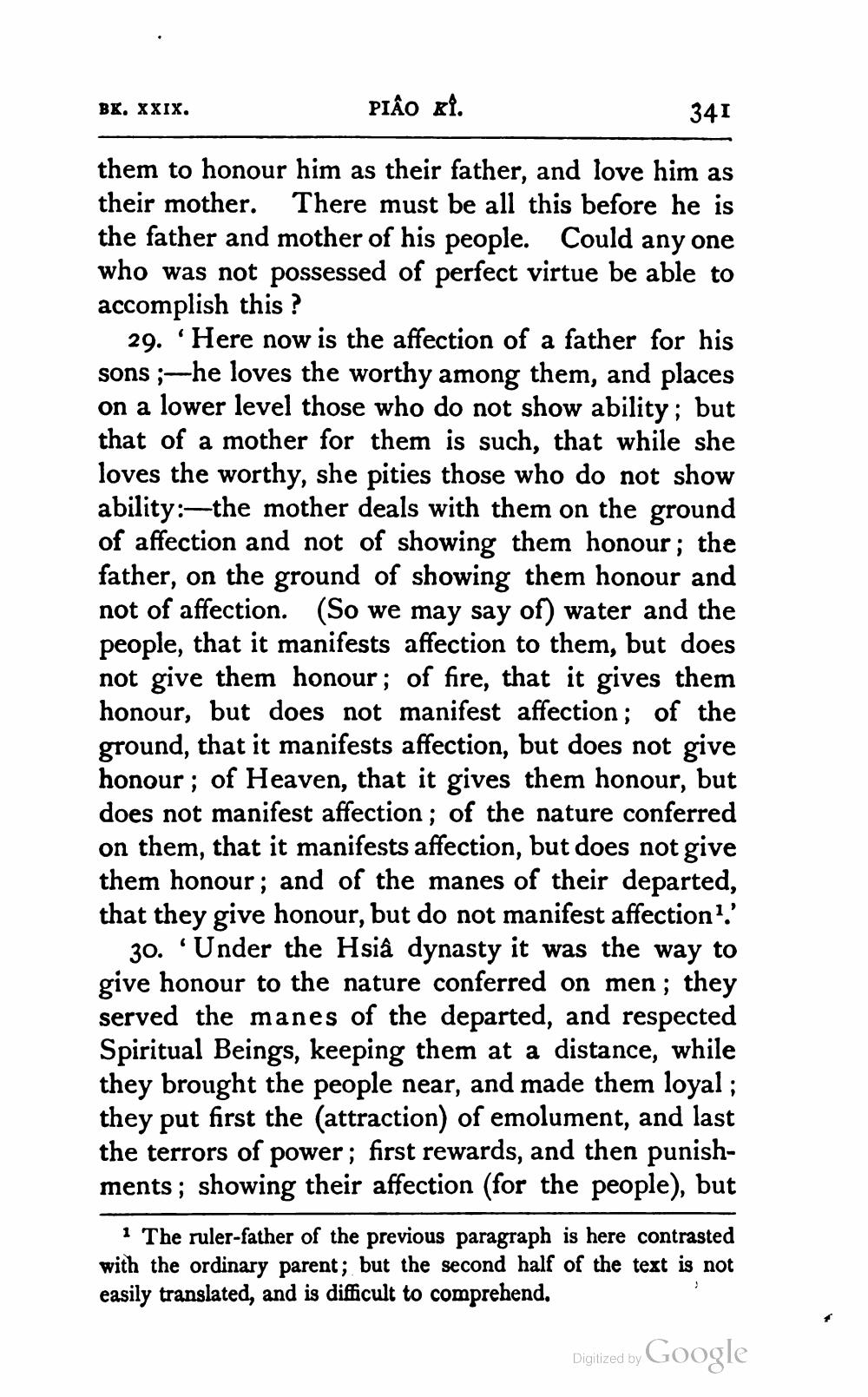________________
PIAO XI.
341
them to honour him as their father, and love him as their mother. There must be all this before he is the father and mother of his people. Could any one who was not possessed of perfect virtue be able to accomplish this?
BK. XXIX.
29. 'Here now is the affection of a father for his sons; he loves the worthy among them, and places on a lower level those who do not show ability; but that of a mother for them is such, that while she loves the worthy, she pities those who do not show ability: the mother deals with them on the ground of affection and not of showing them honour; the father, on the ground of showing them honour and not of affection. (So we may say of) water and the people, that it manifests affection to them, but does not give them honour; of fire, that it gives them honour, but does not manifest affection; of the ground, that it manifests affection, but does not give honour; of Heaven, that it gives them honour, but does not manifest affection; of the nature conferred on them, that it manifests affection, but does not give them honour; and of the manes of their departed, that they give honour, but do not manifest affection'.' 30. Under the Hsiâ dynasty it was the way to give honour to the nature conferred on men; they served the manes of the departed, and respected Spiritual Beings, keeping them at a distance, while they brought the people near, and made them loyal; they put first the (attraction) of emolument, and last the terrors of power; first rewards, and then punishments; showing their affection (for the people), but
"
1 The ruler-father of the previous paragraph is here contrasted with the ordinary parent; but the second half of the text is not easily translated, and is difficult to comprehend.
}
Digitized by
Google




